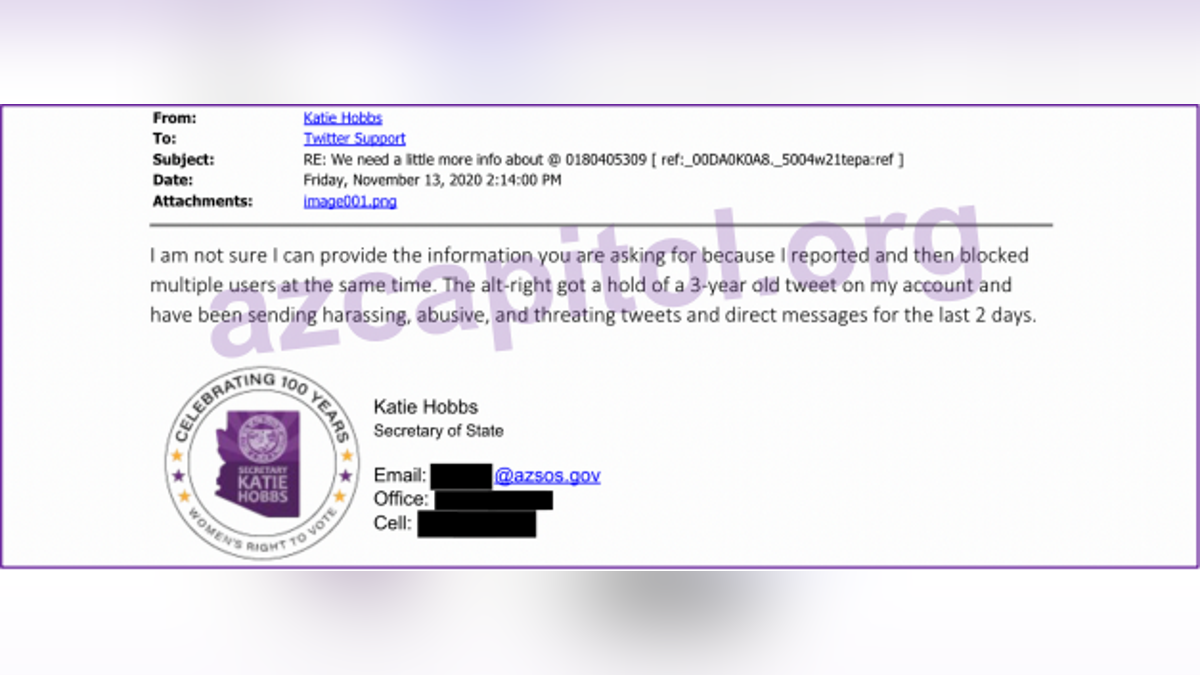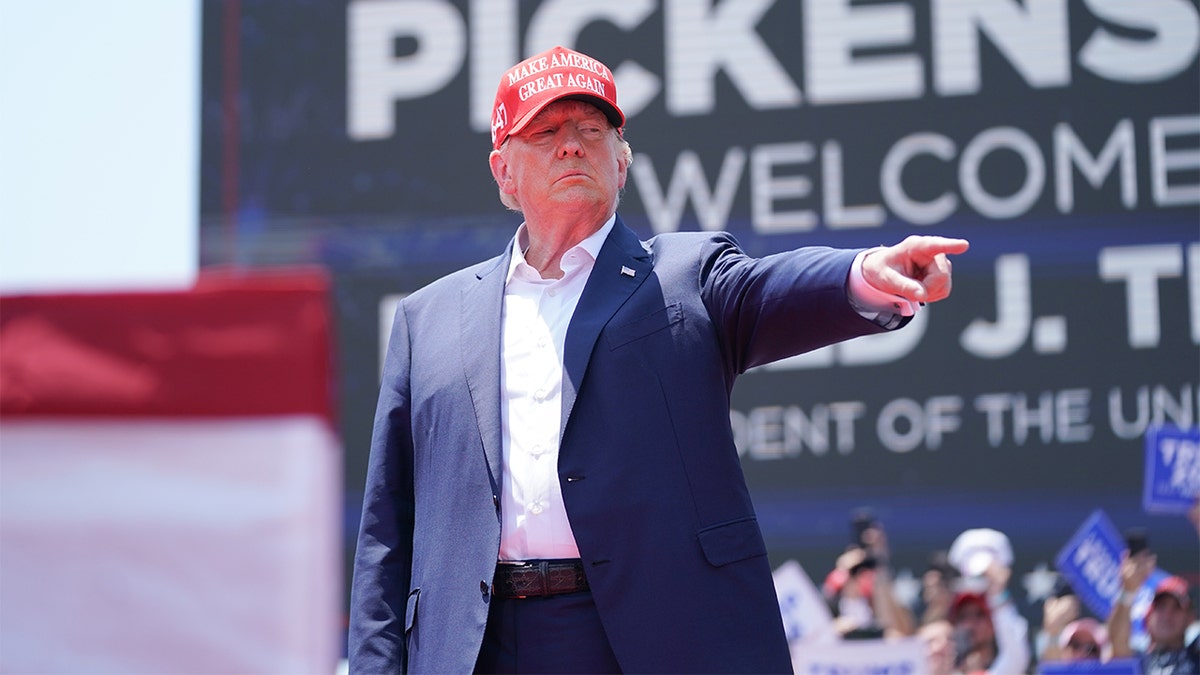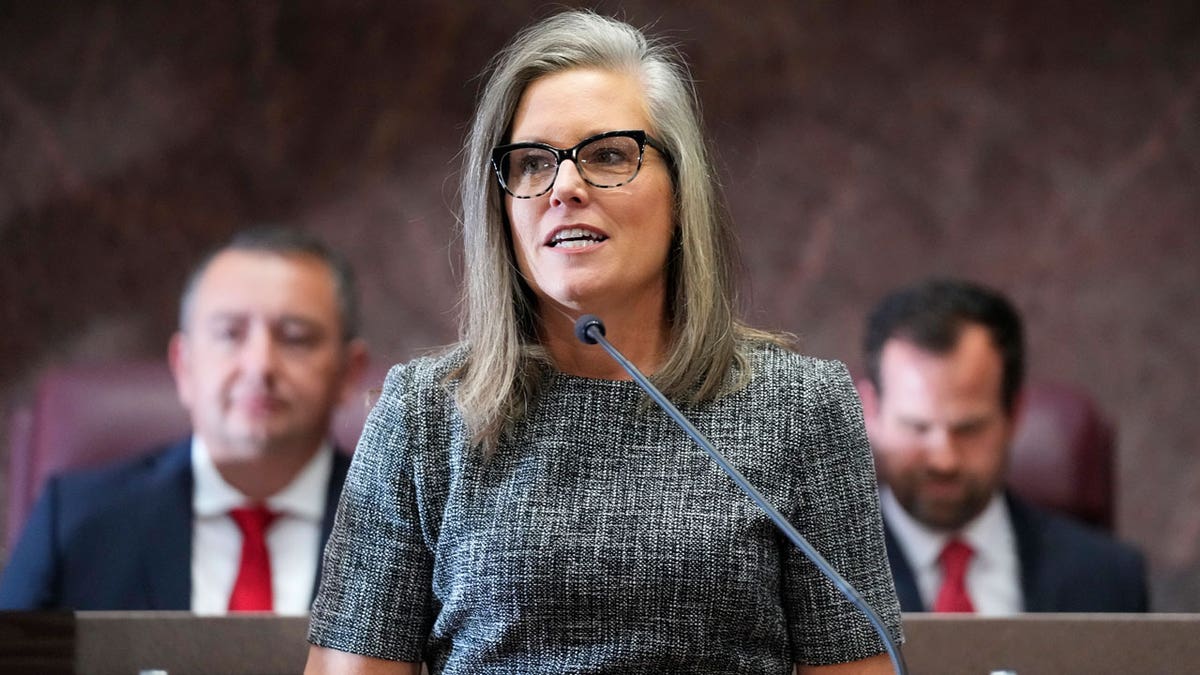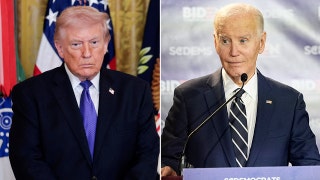Arizona Gov. Katie Hobbs pressed on border surge, education
Arizona Gov. Katie Hobbs sat down with 'Fox News Sunday' host Shannon Bream to discuss how the border crisis has impacted the state and why the debate over school choice is taking center stage.
Democratic Arizona Gov. Katie Hobbs requested the social media website formerly known as Twitter to censor critics of her tweet that compared supporters of former President Donald Trump to Nazis.
In August 2017, while serving in the Arizona state legislature, Hobbs attacked Trump in a tweet, when she compared the former president's voter base to neo-Nazis.
"[Trump] has made it abundantly clear he's more interested in pandering to his neo-nazi base than being [president] for all Americans," Hobbs wrote on her campaign Twitter account.
Hobbs was roasted online for the tweet, which did not sit well with her as she advanced in her political career to become Arizona secretary of state.
The post had critics online call into question Hobbs' impartiality when administering the election, and, according to emails obtained by Fox News Digital from conservative political organization Arizona Capitol Oversight, Hobbs tried to get Twitter, now known as X, to censor the criticism against her.
On Nov. 13, 2020, Hobbs emailed Twitter — using her official Arizona secretary of state email — asking the support team to take action against her online trolls.
Twitter asked for more information and for Hobbs to provide examples for her request, which Hobbs was unable to provide.
Hobbs responded by claiming she was being harassed by "alt-right" online critics after calling political opponents Nazis.
"I am not sure I can provide the information you are asking for because I reported and then blocked multiple users at the same time," Hobbs wrote using her official resources as secretary of state.
"The alt-right got a hold of a 3-year-old tweet on my account and have been sending harassing, abusive, and threatening tweets and direct messages for the last 2 days," she added.

Democratic Arizona Gov. Katie Hobbs claimed she was being harassed by "alt-right" online critics after calling political opponents Nazis. (AZCapitol/Fox News Digital)
Fox News Digital reached out to X and Hobbs' office about the emails asking for Twitter to censor posts critical of her post comparing Trump supporters to the genocidal Nazi regime, but they did not immediately respond.
"These emails leave no doubt that Katie Hobbs abused her position of power in government. She violated the First Amendment rights of people across Arizona in order to suppress valid criticism and prop up her 2022 gubernatorial campaign," AZCapitol's Brian Anderson said in a statement to Fox News Digital. "It’s imperative that further investigations be initiated to shine a light on just how far Hobbs’s unconstitutional censorship campaign went — and whether it continues today."
The revelation of Hobbs' emails comes as the federal government faces accusations of "burying" its involvement in censorship of Americans online.

Former President Donald Trump gestures to the crowd at a campaign event in Pickens, South Carolina, on July 1, 2023. (Sean Rayford/Getty Images)
A federal agency in the Department of Homeland Security that has been scrutinized for what critics argue is suppression of dissenting political views under the guise of combating disinformation now appears to be "burying" evidence of its alleged censorship, experts and watchdog groups say.
The Cybersecurity and Infrastructure Security Agency (CISA) has come under fire for working with Big Tech companies to flag and take down social media posts related to elections, COVID vaccines and a range of other issues that were deemed mis-, dis- and malinformation.
Now, it appears the agency may be concealing its efforts to monitor domestic content posted by regular Americans and focusing exclusively on its campaign to combat foreign actors in what some observers say is a move designed to hide government overreach, according to research compiled by Mike Benz, the Foundation for Freedom Online's executive director.
"CISA pulled a fast one on the American public by setting up a social media censorship division in the name of fighting foreign influence, but then quickly seizing long-arm jurisdiction over domestic opinions online as well," Benz told Fox News Digital. "CISA officials knew they lacked the legal authorization to do what they did. Now, CISA appears to be burying the evidence of its domestic censorship activities, right as oversight of potential malfeasance is heating up."

Twitter asked for more information and for Hobbs to provide examples for her request, which she was unable to provide. (AP Photo/Ross D. Franklin, File)
Benz is hardly the first person to note CISA had questionable legal authorization to combat election disinformation.
"There was a lack of capability around election disinformation. This is not because CISA didn't care about disinformation, but at the time they lacked both kind of the funding and the legal authorizations to go do the kinds of work that would be necessary to truly understand how election disinformation was operating," Alex Stamos, director of the Stanford Internet Observatory, said last year at an event hosted by the Atlantic Council think tank.
CLICK HERE TO GET THE FOX NEWS APP
The Stanford Internet Observatory helped convene the Election Integrity Partnership (EIP), a project combining a coalition of government, Big Tech, civil society, academia and others "to defend our elections against online behavior harmful to the democratic process."
The EIP worked with CISA and others to target what it deemed online disinformation.
Fox News Digital's Aaron Kliegman contributed to this report.















































